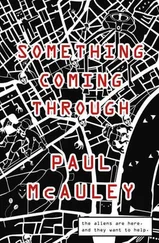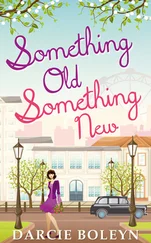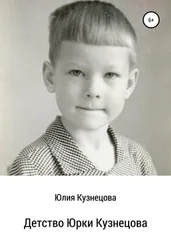Мария Кузнецова - Something Unbelievable
Здесь есть возможность читать онлайн «Мария Кузнецова - Something Unbelievable» весь текст электронной книги совершенно бесплатно (целиком полную версию без сокращений). В некоторых случаях можно слушать аудио, скачать через торрент в формате fb2 и присутствует краткое содержание. Город: New York, Год выпуска: 2021, ISBN: 2021, Издательство: Random House, Жанр: Историческая проза, на английском языке. Описание произведения, (предисловие) а так же отзывы посетителей доступны на портале библиотеки ЛибКат.
- Название:Something Unbelievable
- Автор:
- Издательство:Random House
- Жанр:
- Год:2021
- Город:New York
- ISBN:978-0-52551-191-5
- Рейтинг книги:3 / 5. Голосов: 1
-
Избранное:Добавить в избранное
- Отзывы:
-
Ваша оценка:
- 60
- 1
- 2
- 3
- 4
- 5
Something Unbelievable: краткое содержание, описание и аннотация
Предлагаем к чтению аннотацию, описание, краткое содержание или предисловие (зависит от того, что написал сам автор книги «Something Unbelievable»). Если вы не нашли необходимую информацию о книге — напишите в комментариях, мы постараемся отыскать её.
Something Unbelievable — читать онлайн бесплатно полную книгу (весь текст) целиком
Ниже представлен текст книги, разбитый по страницам. Система сохранения места последней прочитанной страницы, позволяет с удобством читать онлайн бесплатно книгу «Something Unbelievable», без необходимости каждый раз заново искать на чём Вы остановились. Поставьте закладку, и сможете в любой момент перейти на страницу, на которой закончили чтение.
Интервал:
Закладка:
Yaroslava laughed first, and then, little by little, as others began to squint their eyes open, which had coincided with the sound of the bombs dissipating a bit, more passengers began to laugh, first Polya and then the Garanin parents and even Baba Tonya had a sliver of a smile emerge on her puckered face. Then Polya laughed completely, wildly, just as hard as Yaroslava, because she needed the release, and her laughter was so pure and singular that it even made Bogdan laugh at himself. Misha was the least amused. I could feel it from how his arm had stiffened around me, which was when I realized he had his arm around me to begin with. I did not know how long it had been there. His body emanated calm, unlike the manic energy that surrounded his brother when he had covered me in the train car.
“Enough clowning around, brother. We’re at war,” Misha said.
Bogdan removed the teacups from his eyes, offered his brother a goofy smile, and replaced them there. “War, what war? I don’t see a war! Why didn’t anyone tell me there was a war?” he said, pretending to search the ditch with the teacups still over his eyes, generating more rumblings of reluctant laughter. “Did you know there was a war?” he said to little Yaroslava.
The girl laughed hardest of all, and her weary parents were so grateful to him. I wondered if he could see something the rest of us could not, if perhaps he was the only one acting appropriately under the circumstances, embracing the absurdity of it all, understanding how badly the girl needed a bit of laughter. This feeling was only heightened the next day, when the girl was so feverish that she could hardly speak, whimpering in her mother’s arms while Bogdan sat beside her father, holding her hand.
Yaroslava died and was buried the next morning, when the train made its next stop. I was not allowed to help, none of the women were, but as I watched Bogdan cover the girl with earth and tuck a teacup down there with her, I found myself having a strange thought I suspected was summoned by disorientation and hunger: that one day, this boy, who perhaps understood the world better than anyone else on the train did, would make a good and decent father.
A few days later, Mama shoved me and Polya awake in the middle of the night. At first, I thought we had reached our destination—we were supposed to get there any moment—but as I looked out at the barren fields, I saw this was not the case, that everyone else was asleep. What was going on—another raid? Did we have to run under the ghastly train again, and get caked in mud and dirt once more? No, no, this made no sense, it was not a raid, because it would mean everyone else would be up and alert. But only the three of us were awake while everyone else slumbered on, the train chugging its mean chug below us, the sky dark and unwelcoming above.
Mama helped Polya climb down to my bed and covered us with her shawl, an intimate gesture that trapped in our bodily stink.
“What? What is it?” said Polya, rubbing sleep from her eyes. Even in her dreaminess, even in the musk of the train, she looked like an angel and I hated her for it. Mama put a hand over her mouth and lifted the finger of her other hand in the air. Her face was solemn and purposeful, the same sharp squint I saw in her eyes when she sewed a button back on a dress for me late in the evening.
She reached into her pocket and took out a roll—no, two bread rolls! But she was not done. She ripped them open and took out a cloth napkin with a sliver of butter inside and rubbed the butter into the center of the rolls with her steady fingers. This was pure ecstasy, you understand. I took a bite of my bread, and Polya took a bite of hers. Only when I got down to my last bite did I see Mama looking at us with almost joy, as if she were the one eating the bread. I realized how hungry she herself must be, how hard it must have been for her to steal those rolls and that butter for us without saving a shred for herself.
I extended my last mouthful toward her but she pushed my hand away.
“Nonsense, kitten. You need to eat, you’re still growing.”
I expected my sister to glare at me for making her look like the selfish daughter she had always been, but she had a drugged, happy look on her face and even smiled at me, a faint trace of butter gleaming on her lips. As we shoved the crumbs into our mouths and licked our fingers, I felt as if my sister and I were allies, that maybe we even loved each other in our way. Perhaps that was what made Mama so fleetingly happy, more than the food. Or maybe she was just relieved her daughters were still alive, and it didn’t matter what we did.
We returned to our bed, and I watched the mountains rising up before us, mountains that had long replaced the flat fields on the outskirts of Kiev. Then I heard the faint sounds of Aunt Yulia mourning her daughter, accompanied by the quiet whispers of her husband. Just as I began to drift off, a hand cradling my butter-filled belly, I heard a rustling and saw my sister tugging my grandmother’s hand and offering half of her roll, which she had managed to squirrel away. When Baba saw her small but significant offering, she clutched her bread-holding hand with her own shaking, sinewy fingers and kissed it before devouring it in two bites.
“You are my angel,” she told her, wiping her mouth, but toward her lips, not away, so that any leftover rogue crumbs made their way in. “My absolute angel.” And then she turned back around and retreated into dreamland.
Of course, I reminded myself, my sister and grandmother were as thick as thieves, would always be as thick as thieves for as long as the old woman lived. I would never come that close to Polya, even if we had smiled at each other over some butter. Though I knew that the majority of my lifetime was still ahead of me if I was lucky, I could not fight off the feeling that whatever had happened between Polya and me had already happened, and that it was too late to fix things between us, that there was no use trying, that I should save my reservoirs of hope for the horrors to come.
The train deposited us at a desolate platform at last. It was a warm day and it was a joy just to be outside, to be free of the bodies and their insuppressible stink. The platform was marked by a wooden sign with LOWER TURINSK written on it, heaps of dirt, branches, and bird dung. On one side of the tracks loomed the factory where the fathers would work, a gray building with tiny windows and three massive columns releasing smoke into the air; already, some workers were carrying the heavy equipment they had packed up from the Kiev factory off the train onto trucks to haul them to their new workplace. On the other side of the tracks stood a field leading to rows of apartment buildings. They did not appear all that different from the homes we had abandoned; I had expected a village, with huts and horses dotting the landscape as they had in the places the train had passed. Where was the steppe I had dreamed about? What was the point of leaving one place for another that looked just like it? There were mountains in the distance, sure, but I was otherwise unimpressed.
Grim-looking men in army fatigues spotted Uncle Konstantin and waved us over to the registration tent, gave each family our daily bread coupons, and told us we were living in Building 32. We were introduced to Uncle Ivan, a Black Maria–sized man with a rectangular, hair-covered face who was in charge of our building; he would take us and the diminished Garanins to our new home.
“Lower Turinsk welcomes you with open arms,” he said, bowing slightly as the fathers introduced themselves, and I couldn’t tell if he was joking or not.
As we followed him, he explained that the next day was Sunday, so we could settle in, but the following day, all men fifteen and older would report to the factory—so Misha qualified, but Bogdan did not. This pleased them both equally. Misha held his head higher, like the declaration had made him even more adult, while Bogdan pumped a fist in the air at being excluded from the hard labor. The women would work in the factory kitchen, while Bogdan, Polya, and I would go to school, like Mama promised. School! What a relief it would be to return to the land of learning.
Читать дальшеИнтервал:
Закладка:
Похожие книги на «Something Unbelievable»
Представляем Вашему вниманию похожие книги на «Something Unbelievable» списком для выбора. Мы отобрали схожую по названию и смыслу литературу в надежде предоставить читателям больше вариантов отыскать новые, интересные, ещё непрочитанные произведения.
Обсуждение, отзывы о книге «Something Unbelievable» и просто собственные мнения читателей. Оставьте ваши комментарии, напишите, что Вы думаете о произведении, его смысле или главных героях. Укажите что конкретно понравилось, а что нет, и почему Вы так считаете.












